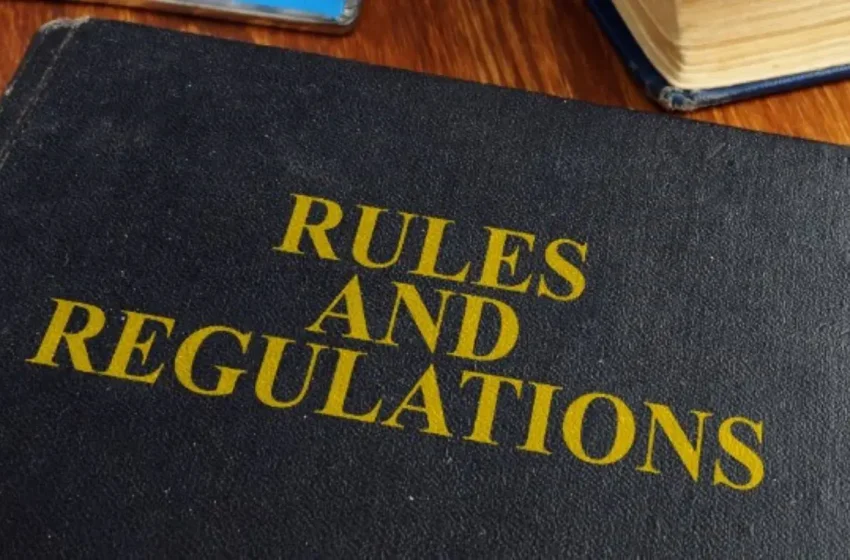Bitwise Sees Bullish Setup for Bitcoin Despite Escalating Geopolitical Shockwaves
Advocacy Groups Push for U.S. SEC Clarity in Crypto Regulations
(Originally posted on : Crypto News – iGaming.org )
A coalition of advocacy groups and prominent organizations is rallying behind Coinbase, urging the Securities and Exchange Commission (SEC) to introduce definitive regulations for the cryptocurrency sector. This movement, highlighted by recent amicus briefs submitted to the Third Circuit Court of Appeals, showcases a united front consisting of the Crypto Council for Innovation (CCI), Satoshi Action Fund, Texas Blockchain Council, investment firm Paradigm, digital asset company Lejilex, and the U.S. Chamber of Commerce. Their collective stance underscores the pressing need for regulatory clarity within the United States’ crypto industry.
These organizations emphasize the detrimental impact of the SEC’s ambiguous stance on digital assets, arguing it fosters uncertainty that could drive crypto businesses offshore. “The uncertainty and paralysis created by the SEC could cause digital asset companies to move out of the United States altogether,” a statement from the joint brief of the Satoshi Action Fund and Texas Blockchain Council points out. They stress the importance of establishing straightforward regulations, particularly when companies face potential legal repercussions for actions previously deemed compliant.
Supporting Coinbase’s appeal for regulatory guidance, these groups criticize the SEC’s reluctance to delineate which tokens fall under its regulatory purview as securities. The appeal, initiated by Coinbase in July 2022, seeks to compel the SEC to formalize its approach to the regulation of digital asset securities. “The Commission’s recent denial of Coinbase’s petition for rulemaking… flouts basic principles of fairness, diminishes faith in domestic markets, and will continue to harm consumers and innovators alike,” the CCI’s brief articulates.
Echoing these sentiments, the U.S. Chamber of Commerce highlights the broader implications of the SEC’s indecision, viewing it as a cautionary tale against regulatory inertia in the face of emerging technologies. “The SEC’s failure to provide clarity for this important new industry offers a case study in the dangers of refusing to adapt regulation to new circumstances,” the Chamber comments.







 Bitcoin
Bitcoin  Ethereum
Ethereum  Tether
Tether  XRP
XRP  USDC
USDC  Solana
Solana  TRON
TRON  Figure Heloc
Figure Heloc  Lido Staked Ether
Lido Staked Ether  Dogecoin
Dogecoin  WhiteBIT Coin
WhiteBIT Coin  Cardano
Cardano  USDS
USDS  Bitcoin Cash
Bitcoin Cash  LEO Token
LEO Token  Wrapped stETH
Wrapped stETH  Hyperliquid
Hyperliquid  Monero
Monero  Wrapped Bitcoin
Wrapped Bitcoin  Chainlink
Chainlink  Binance Bridged USDT (BNB Smart Chain)
Binance Bridged USDT (BNB Smart Chain)  Canton
Canton  Ethena USDe
Ethena USDe  Stellar
Stellar  USD1
USD1  Wrapped eETH
Wrapped eETH  Rain
Rain  Dai
Dai  sUSDS
sUSDS  Hedera
Hedera  PayPal USD
PayPal USD  Litecoin
Litecoin  Coinbase Wrapped BTC
Coinbase Wrapped BTC  Avalanche
Avalanche  Zcash
Zcash  Sui
Sui  WETH
WETH  Shiba Inu
Shiba Inu  Cronos
Cronos  Toncoin
Toncoin  USDT0
USDT0  Tether Gold
Tether Gold  World Liberty Financial
World Liberty Financial  MemeCore
MemeCore  PAX Gold
PAX Gold  Polkadot
Polkadot  Uniswap
Uniswap  Mantle
Mantle  Ethena Staked USDe
Ethena Staked USDe  BlackRock USD Institutional Digital Liquidity Fund
BlackRock USD Institutional Digital Liquidity Fund  Circle USYC
Circle USYC  Aave
Aave  Bittensor
Bittensor  Global Dollar
Global Dollar  NEAR Protocol
NEAR Protocol  Falcon USD
Falcon USD  Aster
Aster  Sky
Sky  OKB
OKB  syrupUSDC
syrupUSDC  Pi Network
Pi Network  Ripple USD
Ripple USD  Bitget Token
Bitget Token  Pepe
Pepe  HTX DAO
HTX DAO  Ethereum Classic
Ethereum Classic  BFUSD
BFUSD  Internet Computer
Internet Computer  Ondo
Ondo  Worldcoin
Worldcoin  Pump.fun
Pump.fun  Superstate Short Duration U.S. Government Securities Fund (USTB)
Superstate Short Duration U.S. Government Securities Fund (USTB)  Gate
Gate  POL (ex-MATIC)
POL (ex-MATIC)  KuCoin
KuCoin  Jupiter Perpetuals Liquidity Provider Token
Jupiter Perpetuals Liquidity Provider Token  Midnight
Midnight  Ethena
Ethena  Ondo US Dollar Yield
Ondo US Dollar Yield  Cosmos Hub
Cosmos Hub  Jito Staked SOL
Jito Staked SOL  NEXO
NEXO  USDtb
USDtb  Binance-Peg WETH
Binance-Peg WETH  Official Trump
Official Trump  Rocket Pool ETH
Rocket Pool ETH  Spiko EU T-Bills Money Market Fund
Spiko EU T-Bills Money Market Fund  Binance Bridged USDC (BNB Smart Chain)
Binance Bridged USDC (BNB Smart Chain)  Algorand
Algorand  Aptos
Aptos  Wrapped BNB
Wrapped BNB  OUSG
OUSG  Function FBTC
Function FBTC